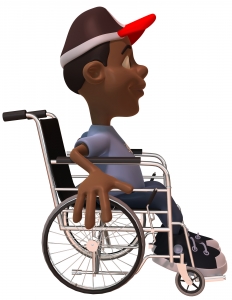
In the previous post, you met Jennifer Peter, an Iowa professional learning and leadership consultant. If her explanation of the difference between Individualized Education Plans (IEPs) and 504b plans was helpful, you’ll also appreciate her answer to this question: What advice do you have for parents about how to maximize services for their children with special needs?
Services for Preschoolers
Jennifer explained that from birth to age three, services are set in motion by a referral from a medical professional, usually a doctor, to the local early childhood program office. Once the referral is made, the office has 45 days to meet with the family, and determine what services are needed. From birth to three, most services are provided in the home. From ages three to five, services are delivered in a pre-school setting if possible, where children are integrated with other kids.
So if you think your child needs special services, talk to your doctor about your concerns immediately. Be persistent. Early intervention can be highly successful.
School-Aged Children
Once children reach school age, their disability must affect their educational progress to qualify for educational services. Schools are not required to provide remediation for a medical diagnosis that don’t affect a child’s ability to learn. But they must provide accommodations so a diagnosed medical condition doesn’t prevent instruction or learning. You can find a more detailed discussion of Jenn’s advice on this topic at Which Do You Need: IEP or 504b?
State Vocational Rehabilatation
As a child approaches adulthood, Jenn encourages parents to explore all available avenues for support and services. If your child needs adaptive equipment to achieve gainful employment, your state’s vocational rehabilitation program may have the funds to pay for them. They may also pay part of college tuition. Other state programs provide funding to make a van handicapped accessible. Organizations like Easter Seals provide portalifts. If there’s a national foundation for your child’s condition or disease, they may have equipment loaner programs or education scholarships, too.
The key, no matter the age of your child, is persistence. Keep at it. Keep looking. Keep an open mind, and see what you find. If your persistence has paid big dividends, or you’ve found assistance in unexpected places, please share your story. Maybe it can help someone else, too.
Do you like what you see at DifferentDream.com? You can receive more great content by subscribing to the quarterly Different Dream newsletter and signing up for the daily RSS feed delivered to your email inbox. You can sign up for the first in the pop up box and the second at the bottom of this page.


